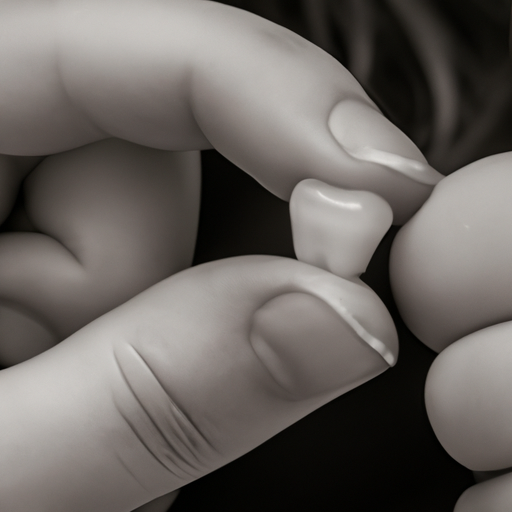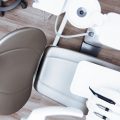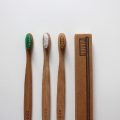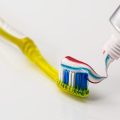So, you’ve accidentally knocked out a tooth. Ouch! It’s definitely not a pleasant situation to be in, but don’t panic just yet. There are a few steps you can take to increase the chances of saving that tooth and preventing any further damage. From handling the tooth correctly, to knowing when to seek immediate dental care, this article will provide you with essential tips on what to do if you find yourself in this unfortunate predicament.
Assess the Situation
Stay calm and assess the situation
If you have just knocked out a tooth, the first and most important thing to do is to stay calm. It can be a scary and painful experience, but panicking will not help the situation. Take a deep breath and try to assess the situation calmly.
Determine if it is a permanent tooth or a baby tooth
Once you are calm, the next step is to determine whether the tooth that has been knocked out is a permanent tooth or a baby tooth. This is important because the treatment and care needed for each type of tooth may vary. Permanent teeth are the adult teeth that will last a lifetime, while baby teeth will eventually fall out on their own.
Find the Tooth
Locate the knocked-out tooth
After assessing the situation, it’s time to find the knocked-out tooth. Look carefully around the area where the incident occurred, keeping in mind that the tooth may have been dislodged and could be lying on the ground or floor. If you cannot find the tooth, check your mouth to ensure it hasn’t been pushed back into the socket.
Handle the tooth properly
When you find the tooth, it’s important to handle it properly to increase the chances of successful reattachment. Avoid touching the root of the tooth, as this can damage the cells necessary for reattachment. Instead, hold the tooth by the crown, which is the part that is usually visible in the mouth.
Clean the tooth if necessary
If the tooth is dirty or has debris on it, you can gently rinse it with saliva or milk. However, it’s important to note that you should never scrub the tooth or use soap, as this may damage the delicate root surface. It’s best to minimize any excessive handling or cleaning of the tooth to preserve its viability.
Keep the Tooth Moist
Store the tooth in milk or saliva
To increase the chances of successful reimplantation, it is crucial to keep the knocked-out tooth moist. If possible, place the tooth back into its socket. If this is not possible, store the tooth in a container of milk or saliva. Milk and saliva help to keep the tooth’s cells hydrated and viable, increasing the likelihood of successful reattachment.
Avoid storage in water or dry conditions
It’s essential to avoid storing the tooth in water or dry conditions as this can cause the tooth to dry out, leading to cell damage and decreased chances of reimplantation. Placing the tooth in milk or saliva creates a more suitable environment for preserving the tooth until you can see a dental professional.
Contact a Dental Professional
Call a dentist immediately
After properly storing the knocked-out tooth, it is important to contact a dental professional as soon as possible. Call your regular dentist or a nearby dental clinic, and explain the situation. They will be able to provide guidance and arrange an appointment for you. It’s important to keep in mind that time is of the essence when it comes to successfully reattaching a knocked-out tooth.
Seek emergency dental care if necessary
In some cases, the dental professional may advise seeking emergency dental care. This may be necessary if the injury is severe, there is excessive bleeding, or if other facial injuries have occurred. They will guide you on the best course of action based on the specific situation.
Examine the Mouth
Check for other injuries in the mouth
While waiting for dental care, it is advisable to examine your mouth for any additional injuries. Look for any cuts, lacerations, or wounds that may have occurred during the incident. If you notice any other injuries, it’s important to address them promptly to ensure proper healing and prevent any complications.
Address bleeding or pain
If there is bleeding from the mouth, gently rinse your mouth with water to clear away any blood and assess the source of the bleeding. Apply gentle pressure to the bleeding area using clean gauze or a cloth to help control bleeding. If you are experiencing any pain, over-the-counter pain relievers can be taken as directed to help manage the discomfort.
Control Bleeding
Apply gentle pressure to the bleeding area
If there is bleeding from the mouth, it’s important to apply gentle pressure to the bleeding area to help control and reduce bleeding. Take a clean gauze or cloth and apply it to the site of the bleeding. Maintain gentle, consistent pressure until the bleeding slows down or stops. Avoid pressing too hard, as this can further damage the surrounding tissues.
Use a cold compress to reduce swelling
A cold compress can be used to help reduce swelling and minimize pain. Take a clean cloth or towel, wrap ice in it, and apply it gently to the affected area. Avoid placing the ice directly on the skin to prevent ice burn. Applying the cold compress for 10-15 minutes at a time, with intervals of rest in between, can help alleviate swelling and provide some relief.
Manage Pain
Take over-the-counter pain relievers if needed
If you are experiencing pain after knocking out a tooth, over-the-counter pain relievers can be taken to help manage the discomfort. Nonsteroidal anti-inflammatory drugs (NSAIDs) such as ibuprofen or acetaminophen can be effective in reducing pain and inflammation. However, it’s important to follow the instructions on the packaging and consult with a dental professional if the pain persists or worsens.
Avoid placing aspirin directly on tooth or gums
While it may be tempting to place aspirin directly on the affected area to alleviate pain, it’s crucial to avoid doing so. Aspirin is acidic and can cause burns on the gum tissue, leading to further complications. Stick to over-the-counter pain relievers and consult with a dental professional for appropriate pain management strategies.
Protect the Socket
Cover the empty socket with clean gauze or cloth
After a tooth is knocked out, there will be an empty socket where the tooth used to be. To protect the socket and prevent further injury, cover it with clean gauze or cloth. This helps to prevent food particles or debris from entering the socket and also provides a barrier against accidental damage.
Avoid touching or probing the socket with your fingers
It’s important to avoid touching or probing the socket with your fingers, tongue, or any other objects. This can disrupt the blood clot formation or cause further injury to the socket. Leave the socket undisturbed and allow it to heal naturally. Your dental professional will provide further instructions on socket care during your appointment.
Prevent Infection
Avoid smoking or using tobacco products
To promote optimal healing and prevent infection, it is important to avoid smoking or using tobacco products. Smoking can delay the healing process and increase the risk of infection. Additionally, tobacco can be irritating to the gum tissue and impede the healing of the socket. It’s best to refrain from smoking until the tooth has been properly treated and healed.
Follow the dentist’s instructions for oral hygiene
Proper oral hygiene is essential in preventing infection and promoting healing after knocking out a tooth. Follow the instructions provided by your dental professional for caring for the rest of your mouth, paying attention to any special considerations for the socket area. This may include gentle rinsing with saltwater or using a prescribed mouthwash to help keep the area clean and free from bacteria.
Consider Tooth Replacement Options
Discuss tooth replacement options with your dentist
After the immediate care for the knocked-out tooth, it is important to discuss tooth replacement options with your dentist. They will assess the condition of the tooth and surrounding structures to determine the best course of action. This can include discussing options such as dental implants, bridges, or dentures to restore the appearance and function of your smile.
Explore dental implants, bridges, or dentures
Depending on the specific circumstances, your dentist may recommend dental implants, bridges, or dentures as viable tooth replacement options. Dental implants are a popular choice as they provide a long-term solution that closely mimics the look and feel of a natural tooth. Bridges are another option where the missing tooth is connected to adjacent teeth, while dentures can replace multiple missing teeth.
In conclusion, if you have knocked out a tooth, it’s important to stay calm and assess the situation. Determine if it is a permanent tooth or a baby tooth, and then locate the tooth and handle it properly. Keep the tooth moist by storing it in milk or saliva, and contact a dental professional immediately. Examine the mouth for any other injuries and address bleeding or pain. Control bleeding by applying gentle pressure and use a cold compress to reduce swelling. Manage pain with over-the-counter pain relievers, but avoid placing aspirin directly on the tooth or gums. Protect the socket by covering it with clean gauze or cloth, and prevent infection by avoiding smoking or using tobacco products. Follow the dentist’s instructions for oral hygiene and consider tooth replacement options by discussing them with your dentist. By following these steps, you can ensure the best possible outcome after knocking out a tooth.












